Periodontal Disease Treatment Goodlettsville
Creating a Path to Healthier Gums
Unfortunately, periodontal disease doesn’t just affect your gums. If left untreated, it can cause tissue damage, tooth loss, and bone loss that can result in needing a bone graft. Dr. McClain offers a variety of periodontal disease treatments at our Goodlettsville dental office, all of which can address many side effects of this dangerous bacterial infection and prevent further damage to your teeth, gums, and bones. So, call us today to schedule an appointment if you need help to address bleeding, swollen, or tender gums.
Why Choose Goodlettsville Smiles for Periodontal Disease Treatment?
- One-Stop Shop for Families to Receive High-Quality Dental Care
- In-Depth Dental Imaging to Identify Problem Areas of One’s Smile
- Flexible Dental Financing Available Through Cherry
What Is Periodontal Disease?

Also known as gum disease, periodontal disease is an infection of the gums by oral bacteria. If left untreated, it can cause dangerous inflammation, as well as a long list of dangerous side effects such as tooth loss, gum loss, and even deterioration of your jawbone. Bacteria can also enter the bloodstream and travel throughout the body, causing medical complications for patients with diabetes, cancer, and Alzheimer's disease. In fact, it has been linked to dementia and has even been posthumously discovered in the brains of those with the condition.
An estimated 47.2 percent of adults aged 30 years or older have some form of periodontal disease, and your risk only increases with age. By 65, a staggering 70.1 percent of all adults will have periodontal disease.
There are two types of periodontal disease: gingivitis, the earliest stage, which is reversible with intervention, and periodontitis, which is more advanced and can only be managed, not cured.
Lifestyle behaviors that can increase your risk of developing periodontal disease include:
- Smoking or using tobacco products
- Poor oral hygiene
- Genetics
- Immune-compromising conditions such as diabetes
- Certain medications that cause dry mouth
- Hormonal changes such as pregnancy
Symptoms of Periodontal Disease

Many symptoms of periodontal disease can appear depending on how far it has progressed. For gingivitis, warning signs include:
- Chronic bad breath (halitosis)
- Red or swollen gums
- Bleeding gums during brushing or flossing
- Tender gums
- Gum recession along the edges of your teeth
Signs of periodontitis may include:
- Pain when chewing
- Loose permanent teeth
- Sensitive teeth
- A change in bite
- Changes to the fit of your dentures or other prosthetics
- Permanent tooth loss
How Do We Treat Periodontal Disease?

How we treat your periodontal disease depends on how advanced your condition is. Before developing a treatment plan, your dentist will thoroughly examine your mouth. Once they have an accurate picture of your oral health, they may recommend one or more different types of treatments that address specific symptoms you may have.
Scaling & Root Planing
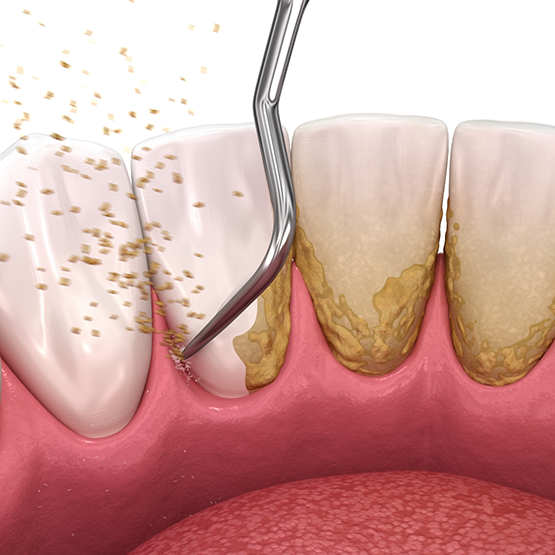
Scaling and root planing is a two-step procedure that’s typically completed in two visits to our dental office in Goodlettsville. During your routine examination, our team will inform you of whether you’re exhibiting signs of periodontal disease and may recommend periodontal treatment to intervene before symptoms have an opportunity to progress. As the top cause of tooth loss, we pride ourselves on being diligent about protecting your smile from this common dental disease.
Do You Need Scaling & Root Planing?
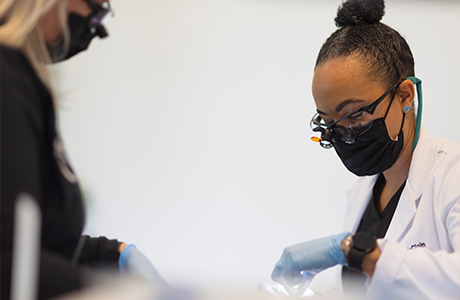
During your regular dental checkups, Dr. McClain will keep an eye out for common signs of the early and late-stage symptoms of periodontal disease. Gingivitis, which is the earlier stage of the infection, can manifest in the following ways:
- Bleeding gums when you brush and floss your teeth
- Persistent bad breath, also known as halitosis
- Visible plaque and tartar accumulation
- Red, swollen, or tender gums
Periodontitis - the later, more progressed stage of periodontal disease - can cause the following symptoms:
- Gum recession that causes your teeth to appear longer
- Deep pockets between the teeth and gums
- Shifting or loose teeth caused by soft and hard tissue deterioration
- Difficulty or discomfort chewing
- Tooth loss
Based on our findings during your examination, we may also recommend periodontal treatment to help get the infection under control and restore your oral health.
The Process of Getting Scaling & Root Planing
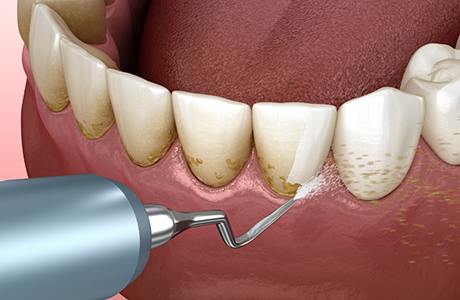
This procedure begins with a thorough cleaning of the surface of your teeth, removing all plaque and tartar accumulation. At your next visit, one of our skilled dental hygienists will then clear any hardened deposits of bacteria from the roots of the teeth that lie below the gumline. This will allow the gums to healthily reattach to the surface of your teeth to protect the underlying roots.
Aftercare Tips for Scaling & Root Planing

Our dental hygienists will make sure you remain completely comfortable during your procedure, and in most cases, we’ll administer a local anesthetic to help numb the mouth before a deep cleaning.
Following your procedure, it’s normal for your teeth to feel more sensitive and experience bleeding and swelling as your gums heal. It’s important for you to continue practicing good oral hygiene by brushing twice a day with fluoride toothpaste and flossing daily. We may also prescribe an antibiotic or special mouthwash to help keep the infection at bay.
In the first week, you may need to use an over-the-counter pain reliever to help with any discomfort, and you should avoid foods that are spicy, overly hot, or crunchy to not irritate your gums. If you have any concerns following your procedure, don’t hesitate to reach out to your dentist in Goodlettsville, Dr. McClain.
Antibiotic Treatment

There are several types of prescription antibiotics or antimicrobal rinses your dentist may use to help fight bacteria following scaling and root planing treatment. These include prescription mouthwash, pills, or a treatment called Arestin, which is applied directly to the pockets of your gums. Your dentist will discuss your options at the time of your treatment.
If the dentist doesn’t offer Arestin, they likely prescribe a prescription mouthwash or pill that is designed to minimize bacteria within the mouth. Typically, this is often prescribed in combination with other treatments, like scaling and root planing.
Laser Periodontal Treatment
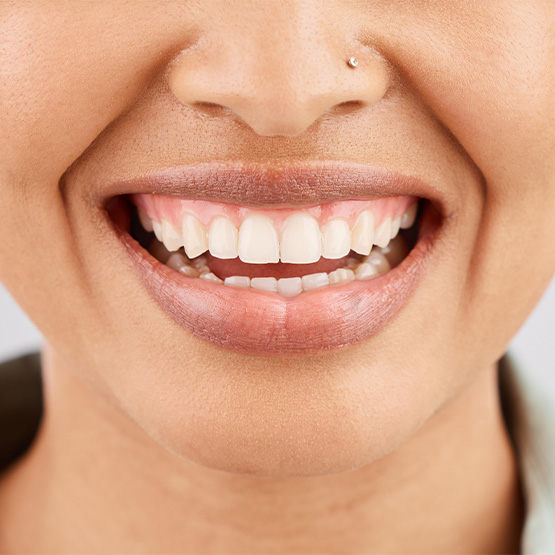
A soft tissue laser can be used during the scaling and root planing or Chao Pinhole procedure to help kill bacteria and remove severely damaged gum tissue, leaving behind only healthy tissue. Laster therapy minimizes bleeding and eliminates the need for sutures and a scalpel, which creates a much more comfortable treatment and recovery experience.
How Laser Periodontal Treatment Works
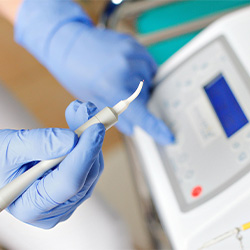
Laser periodontal treatment is often used in conjunction with scaling and root planing or the Chao Pinhole Technique. During this procedure, we use a soft tissue laser instead of a scalpel to remove diseased and infected tissue that is not salvageable. Since the laser is very precise, we are able to preserve as much healthy tissue as possible during this process.
Once the diseased tissue is gone, we can perform scaling and root planing to rid the mouth of any remaining harmful bacteria and give your gums a chance to firmly reattach to the roots of your teeth. You may also need the Chao Pinhole Technique, which is an alternative to a gum graft that can make sure the roots of your teeth have adequate gum coverage.
The Benefits of Laser Periodontal Treatment

Laser periodontal treatment offers numerous benefits:
- The laser kills bacteria, meaning it can fight gum disease and comes with very little risk of post-surgery infections. In fact, it may even lower the risk of future infections as well.
- The laser’s precision allows us to preserve as much healthy tissue as possible.
- The laser cauterizes tissues, so very little bleeding is involved, and there is usually no need for sutures.
- Patients tend to experience less post-op discomfort following laser periodontal treatments (as opposed to treatments that involve the use of a traditional scalpel).
- You can expect a relatively quick recovery period.
Aftercare Tips for Laser Periodontal Treatment

Even though the recovery period after laser periodontal treatment is fairly quick, you can still expect your mouth to be sore for a week or so. (Traditional gum surgeries usually have a recovery time of 2 – 4 weeks.)
To facilitate an easy healing process, you should:
- Take over-the-counter pain medications.
- Eat a soft diet that does not contain extremely hot, cold, acidic, or spicy foods.
- Keep up with good oral hygiene, but be very gentle around the gum area.
- Attend recommended follow-up appointments so we can check on your progress.
- Call us if you have questions or concerns.

